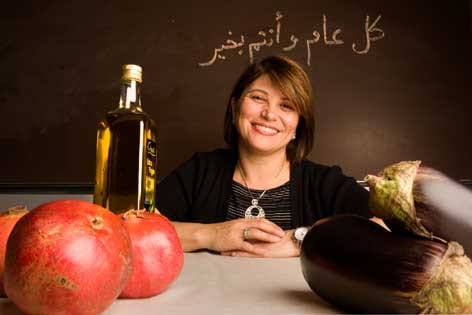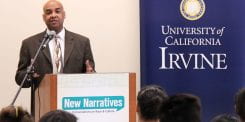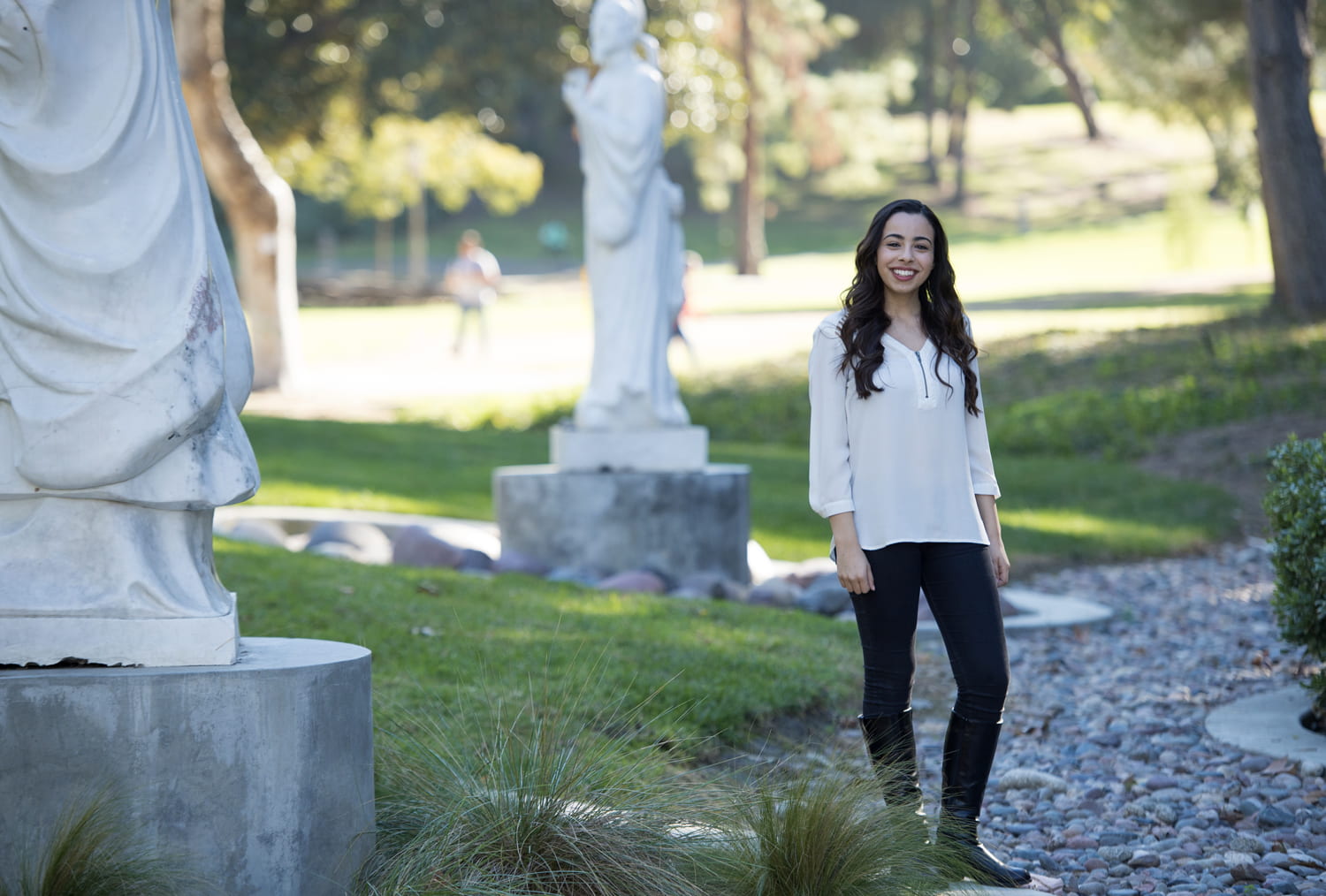Creating global citizens
Humanities program offers diverse language courses, from Arabic to Vietnamese.

UC Irvine senior Sabeen Khanmohamed is planning a career in international law and dreams of working for the United Nations. Becoming fluent in Arabic, she believes, would be a valuable asset in this quest.
The literary journalism and history major says UCI’s Arabic language classes have instilled in her a deeper appreciation of Middle Eastern food, music and customs. “Arabic is extremely difficult to master,” she says, “but I keep studying because I love the language and the culture, and it suits my career goals.”
Arabic, Hebrew, Hindi, Persian, Russian and Vietnamese classes are offered through the Humanities Language Learning Program, created last spring to teach languages not associated with UCI degree programs. Nearly 400 students enroll in the courses each quarter.
“Language learning is vital to a university education since our world is so interconnected,” says HLLP director Glenn Levine. “It’s essential for fostering global literacy and bringing international diversity to the campus.”
The program also encompasses experts in applied linguistics and recently received a grant to conduct online language testing. In addition, teacher training and professional development is made available to instructors, faculty and graduate students in the School of Humanities.
The National Security Language Initiative of 2006 indentified Arabic, Hindi, Persian and Russian language skills, among others, as fundamental to U.S. economic competitiveness and security interests. Government agencies such as the FBI have hired thousands of foreign-language speakers to translate documents and audio files since 9/11.
UCI senior Jessica Garcia, a political science major, is learning Arabic and Hindi in preparation for a career as a government translator. Already versed in English, Spanish and Tagalog, she plans to study Arabic this summer in Egypt or Jordan.
“Government agencies and the military look for people competent in Asian and Middle Eastern languages,” says Garcia. “Learning another language encourages cultural understanding and mutual respect.”
She and Khanmohamed are taking Arabic with lecturer Amina Yassine, a native speaker also fluent in French and Spanish.
Memorization drills, reading foreign newspapers and listening to audiotapes are standard language teaching techniques, but Yassine likes to start with something she calls “the tummy effect.”
“Food is a great way to introduce students to the language and culture of a particular region,” says Yassine, also interim director of the Spanish program. “I utilize food and music in the classroom before I turn to politics or religion.”
The Lebanon native admits it can be daunting to learn a new language. Arabic is especially challenging, with its unique alphabet, complex grammar, various dialects and dissimilarity to English. But the experience is life-changing, she says.
“Language instruction is probably the best thing we can offer students at UCI,” Yassine says. “To be well rounded, you need to step out of your linguistic and cultural bubble.”

